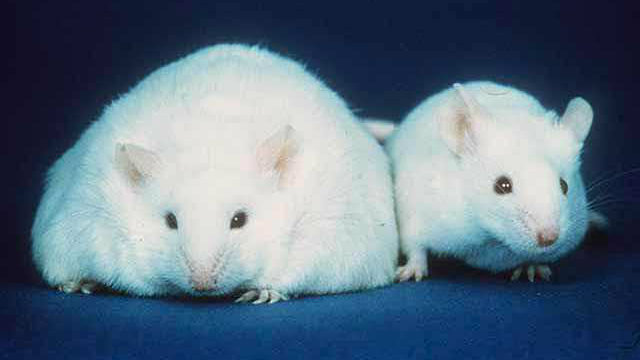 Reading Time: 4 minutes
Reading Time: 4 minutesStop me if you’ve heard this one. Lack of sleep is making you fat.
Turns out this isn’t a joke.
It’s a research-supported finding you’d do well to understand — how long you sleep directly influences your energy, hunger, and body fat levels. In other words, those late nights and early mornings are royally screwing up your fitness plans. Here’s why.
Leptin, Ghrelin, and Your Appetite
There are two hormones that control your hunger level: ghrelin and leptin. You can think of them as opposites — ghrelin tells you it’s time to start eating, leptin tells you it’s time to stop.
A Quick Geek Out for the Nerds Among Us
Ghrelin is a peptide hormone secreted by your stomach, hypothalamus, and other parts of your endocrine system in response to an empty stomach. It signals appetite and encourages fat accumulation — handy mechanisms for keeping you from wasting away from lack of food.
Leptin is also a peptide hormone, this one secreted by your adipose tissue (body fat). It signals to your brain (via the hypothalamus) to suppress your appetite and increase your activity levels. It says, “Hey brain, there’s enough body fat down here, so let’s quit eating and get moving.”
On the face of it, this sounds pretty cool — if you accumulate a bunch of body fat, your brain should be getting signals to quit eating and start moving (both being behaviors that would lead to fat loss). Getting fat should just make you skinny again, right?
Turns out this is an oversimplification. If you pass the tipping point and accumulate too much body fat, you actually become “leptin resistant.” This means the brain receives so much leptin signaling that it actually stops listening and never receives the message that you’re full — and so you keep eating. This creates a vicious cycle that leads to obesity. The ghrelin gets you eating, and chronic leptin elevation keeps you at the table.

The mouse on the left has leptin issues, while the mouse on the right does not. Courtesy of the Oak Ridge National Laboratory.
We need ghrelin and leptin working in balance to drive ideal body composition:
- Too much ghrelin and we don’t stop eating (because there’s a constant feeling of hunger).
- Too little leptin and we don’t stop eating (because there’s no signal to stop).
- Too much leptin over time, we don’t stop eating (because we develop leptin resistance).
Therefore, any disruption to your leptin and ghrelin levels is a problem — and it turns out that a lack of sleep is one of the prime disruptors.
Ghrelin and Lack of Sleep
In a landmark 2004 study of 1,040 participants’ sleep habits, Emmanuel Mignot of the Stanford Center for Sleep Sciences and Medicine found that an ongoing lack of sleep was correlated with increased ghrelin levels and reduced leptin levels.
As we would suspect, this recipe — increasing the “start eating” hormone and reducing the “stop eating” hormone — is a surefire way to induce overeating.
Indeed, the study found a u-shaped relationship between sleep duration and body mass index (a commonly-used measure of obesity). Among the participants, minimum BMI was seen with an average of 7.7 hours of sleep per night, with BMI increasing proportionally for all sleep times of less than 8 hours. Interestingly, the study showed that oversleeping is associated with higher BMI levels, as well.
In summary, the less participants slept:
- The less leptin they produced
- The more ghrelin they produced
- The greater their BMI
Impressively, the finding was statistically valid even after adjusting for the age and sex of the participants, and has been replicated (in part or whole) by several other studies, including a study that found that as little as one night of sleep deprivation (decreasing from 7 to 4.5 hours) was associated with increased ghrelin levels as well as self-reported hunger.
The Fat Loss Lesson
Sleep plays a key role in regulating your hunger hormones. Therefore, if you want to positively influence your body composition, the first thing you should do is make sure you’re getting the ideal amount of sleep (between 7-8 hours every night). This will ensure that your leptin and ghrelin levels don’t get out of whack, keeping you in the ideal balance between hunger and satiety.
It’s a fat loss lesson we can all get behind — get more shut-eye, and you’ll be less likely to tip the scales in the wrong direction.
Ready to learn more about fat loss? Read Part 2: The Shortcut for the basics on working out to maximize the right kind of weight loss.







